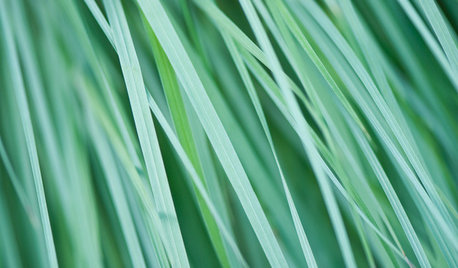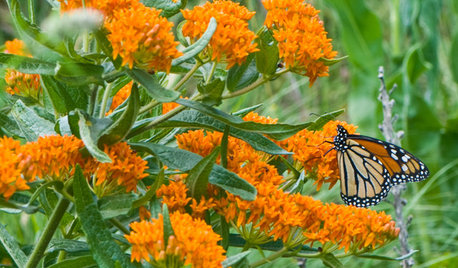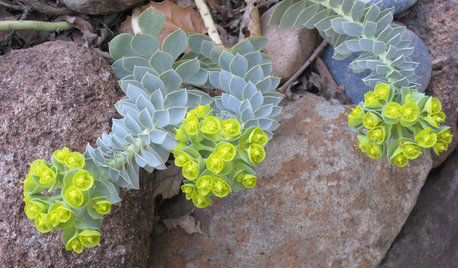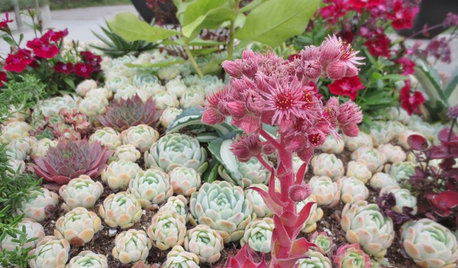Plant Patents... What's the deal?
jason83
13 years ago
Related Stories

WINDOW TREATMENTS6 Ways to Deal With a Bad View Out the Window
You can come out from behind the closed curtains now. These strategies let in the light while blocking the ugly
Full Story
PETSDealing With Pet Messes: An Animal Lover's Story
Cat and dog hair, tracked-in mud, scratched floors ... see how one pet guardian learned to cope and to focus on the love
Full Story
LIFEThe Polite House: How to Deal With Noisy Neighbors
Before you fly off the handle, stop and think about the situation, and follow these steps to live in harmony
Full Story
HOUZZ TOURSMy Houzz: Yard Seals the Deal for an Eichler Home
Expansive indoor-outdoor living sold a couple on this midcentury California home, now brimming with vintage finds collected over time
Full Story
LANDSCAPE DESIGNGarden Overhaul: Which Plants Should Stay, Which Should Go?
Learning how to inventory your plants is the first step in dealing with an overgrown landscape
Full Story
GARDENING GUIDESGreat Design Plant: Little Bluestem Goes Above and Beyond
It thrives in poor soil and provides food and shelter for wildlife. Plus, Schizachyrium scoparium is just a darn pretty native grass
Full Story
GARDENING GUIDESGreat Design Plant: Butterfly Milkweed, a Beacon in the Prairie
Vivacious orange flowers for you, nectar for the butterflies and bees. Asclepias tuberosa is worth planting for more reasons than one
Full Story
GARDENING GUIDESNo-Regret Plants: 5 Questions Smart Shoppers Ask
Quit wasting money and time at the garden center. This checklist will ensure that the plants you're eyeing will stick around in your yard
Full Story
BLUE AND GRAY FOLIAGEGreat Design Plant: Donkey Spurge
Yes, there's the awful name, plus the sap issue. But this plant's foliage and flowers bring something special to Eastern U.S. gardens
Full Story
GARDENING GUIDESAlpine Plants: High Performers at Low Altitudes Too
So Heidi and the goats aren't your neighbors. Alpine plants can be lovely and low maintenance on difficult sites beyond the mountains
Full StoryMore Discussions






fruitgirl
jason83Original Author
Related Professionals
Anderson Landscape Contractors · Bethel Park Landscape Contractors · Dallas Landscape Contractors · Estelle Landscape Contractors · Mission Landscape Contractors · Waldorf Landscape Contractors · Reisterstown Landscape Contractors · East Norriton Landscape Contractors · Kingsburg Landscape Contractors · St. Johns Carpenters · Woodbury Carpenters · Cockeysville Fence Contractors · Garden Grove Fence Contractors · Maynard Fence Contractors · Sacramento Fence Contractorsmistercross
keking